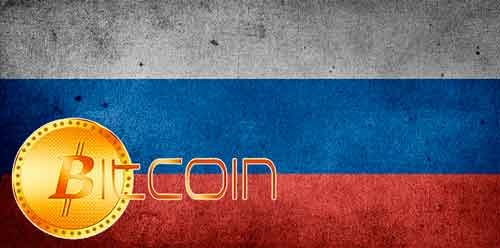
The subject of virtual cryptocurrencies is not new for Russian financial market. For a long time Russian authorities have been trying to regulate, control and even prohibit the operation/circulation of virtual money. Above all, the Russian bureaucracy sees such payment systems as a convenient tool for money laundering or as a means of financing of illegal extremist groups or other undesirable elements. However, cryptocurrency has its opponents and advocates both among general public and among state authorities in Russia.
Some insist that cryptocurrency is only an imitation of money, quasi-money, because it never had any actual money equivalent from the very start and because it is not "cashable". This is the main distinctive feature of cryptocurrency as compared to existing virtual money. Perhaps, feeling some changes in the air, in autumn 2015 WebMoney suggested to Russian Central Bank to become the one who would issue future cryptocurrency. Qiwi, virtual payment service, made one more step forward in this direction, having developed its own virtual currency system and asked to make this system legal.
Interest to Russian national cryptocurrency would remain purely academic if it were not for a serious crisis with WebMoney payment system which happened in March this year and paralyzed mechanisms of transferring electronic money equivalents into actual cash. No wonder discussions about Russian cryptocurrency have gained new vigor and enthusiasm. In this context, it is interesting to remember the infamous proposal of Russian Ministry of Finance to send people to prison of the use of any cryptocurrency.
Cryptocurrency A La Russe
According to Russian governmental financial monitoring agency "Rosfinmonitoring" plans to issue Russian national cryptocurrency are real more than ever. Because cryptocurrency indeed has many advantages:
Cryptocurrency has open source code, which makes free mining possible;
Cryptocurrency is non-counterfeitable;
Cryptocurrency is not subject to inflation;
Cryptocurrency transfers are anonymous (though authorities in Russia are not happy about it and plan to change it);
De-centralization, or absence of a single digital bank center, which makes cryptocurrency truly independent and beyond any control.
However, introduction of a new Russian national cryptocurrency may easily lead to prohibition of circulation of all other virtual currencies inside Russian Federation. To prohibit, cancel, ban and forbid is indeed a favorite thing to do for Russian authorities these days, who seek to get rid of anything they can’t control. In the meantime, leading Russian banks are already discussing the possible outcome of such prohibition...
The basic principles for Russian internal cryptocurrency were stated as follows:
It should be possible to issue this cryptocurrency in the form of cash/non-cash amounts;
There must be an office of issue (legal entity, issuing securities, currency notes, etc. in its own name and for its own business needs);
The office of issue will have both rights and obligations;
The office of issue shall obtain a license for this activity.
First Details
In spite of the fact that all world cryptocurrencies are issued in limited amount, the Russian national "crypto" currency will be different. Companies and individuals will be able to exchange roubles or any other currencies into the cryptocurrency, that is, to buy it. In order to do this they will use exchange services. Today such services are popular as convenient tools for webmoney exchange into roubles or into other virtual money. To be able to use this service a person will have to undergo identification procedure obligatory today for all existing payment platforms. In parallel with introduction of this Russian national cryptocurrency, they plan to ban all other cryptocurrencies. In 2015 a draft of "cryptocurrencies ban" legislation was even posted in Internet.
Market Responses
Various members of financial market in Russia responded to this idea in a different ways. Russian banks are indifferent to it because they just don’t care about cryptocurrencies at all. They are far more excited and interested in blockchain technology – the basis of cryptocurrencies. They would love to use it. Implementation of blockchain technology would make the storage of any information in general much cheaper and money transfers will become cheaper. But do Russians need their own national cryptocurrency? There is no consensus among active owners of virtual wallets too. Yet numerous online stores and web-shops depend on them, as they are the most active online-shoppers. Entrepreneurs who also use virtual money for business settlements are concerned with such plans - it is clear that introduction of the Russian national cryptocurrency will inevitably smash the existing system. And nobody can predict where it can lead to.
We would like to remind that currently Bitcoin is the most popular cryptocurrency worldwide, with capitalization over three billion US dollars. The second best is litecoin (one hundred million US dollars). But in theory, anyone who wishes to do so is able to create a new cryptocurrency, not only mine existing ones. So, it is quite possible that Russia will join the ranks of cryptocurrency creators too
Hi! I am a robot. I just upvoted you! I found similar content that readers might be interested in:
http://paste4btc.com/iI7BHuNp
That's very interesting. Firstly, due to the fact that we are from Russia, secondly, that we are planning to start Tlind Messenger ICO soon.